
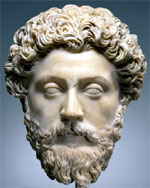 November 18, 2024
November 18, 2024
Philosopher King
Captain Fantastic
Ever since I saw the movie Captain Fantastic where the archetype 'philosopher king' was idealized in a dysfunctional political system, I couldn't get the thought out of mind, especially in this day and age where politics have become synonymous with power, wealth and control. The presence of a philosopher king in this Zeitgeit is compelling, relevant and urgent. Who have been philosopher kings in humankind's history? Do we have a 'philosopher king' who walks amongst us?
A 'philosopher king' is an idealized concept of a virtuous king introduced by Plato in his book, The Republic. It is not about a particular person or even a king, but someone powerful who holds office, who is just, wise and politically savvy. Perhaps no ruler embodied that completely in humankind's history (they all have flaws), but a few came.
Marcus Aurelius (121–180 CE)
 Marcus Aurelius (121–180 CE)
Marcus Aurelius (121–180 CE)
Whenever I come across Marcus Aurelius, I am reminded of the 'philosopher king'. Finally, it got me thinking, what exactly is a 'philosopher king'? Who else in history has been hailed 'philosopher king'?
Marcus was a Roman emperor whose rule marked the height of the Roman Empire. He came from a wealthy family and was tutored by the best minds of the time. He was heir-apparent but still, he ruled Rome jointly with his half-brother. This was the first time 2 emperors ruled one empire. It was a difficult time in Rome during his reign - natural disasters, invasions, plague and economic difficulties. But he was steadfast in his rule, never losing sight of morality and duty.
He is better known for his practice of stoicism. He reflected on his philosophy and insight in Meditations. This work remains the cornerstone of Stoicism to this day. Interestingly, he never meant for it to be read by anyone else. It was a personal journal. He talked about living a virtuous life, accepting one's fate and having self-control.
Ashoka the Great (304–232 BCE)
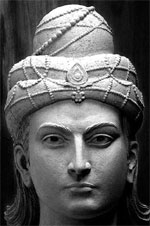 Ashoka the Great (304–232 BCE)
Ashoka the Great (304–232 BCE)
Ashoka was the 3rd emperor of the Mauryan Dynasty of India. His rule is best remembered as a conquest-driven expansion (earning him the reputation of being a ruthless and ambitious conqueror) to governance based on moral and spiritual principles (after his conversion to Buddhism). He converted to Buddhism after seeing so many dead bodies in his triumphant war in Kalinga (perhaps India's bloodiest war). He had a profound remorse that led to his transformation. As a Buddhist emperor, he practiced tolerance, non-violence and ethical governance. He practiced Dhamma - a moral code advocating peace, non-violence, and respect for life. His philosophy and practice were inscribed in rocks and pillars across the empire known as Edicts of Ashoka.
Saladin (1137/1138–1193)
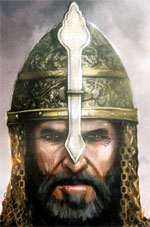 Saladin (1137/1138–1193)
Saladin (1137/1138–1193)
Saladin was the Sultan of Egypt and Syria and the founder of the Ayyubid Dynasty. His rise to power was set during the intense conflict between the Muslims and the Christians in the taking of Jerusalem. He was able to consolidate power among fragmented Muslim fiefdoms in the region towards a common cause. Saladin figured prominently during the 3rd Crusade vs Richard the Lionheart in the defense and the recapture of Jerusalem in the Battle of Hattin. Saladin made a name for himself for his mercy (especially to the vanquished Crusaders ) and his strategic military skill.
He patronized scholars, poets, theologians and thinkers and fostered intellectual and cultural development in his empire. Authoritarian rulers usually suppress artists, philosophers and intellectuals for fear that intellectual discourse may awaken people's minds and revolt against dictatorial or unjust rule.
Saladin wasn't exactly a philosopher or an altar boy - he was a warrior. He was a product of his time and it was a time of war and conquest. As a military leader, he engaged in war and expansion. But his decisions especially from a position of power were guided by an ethical framework of his Muslim faith. He earned the loyalty of his men and the respect and admiration of those he conquered. He did not leave behind a moral or philosophical doctrine relying instead on the moral laws of Islam. His ethical principles make Saladin one of the most admired military figures in both the Islamic and Christian faith.
Suleiman the Magnificent (1494–1566)
 Suleiman the Magnificent (1494–1566)
Suleiman the Magnificent (1494–1566)
Suleiman was the longest-running sultan of the Ottoman Empire who was renowned for his brilliant military skill and his liberalization of culture, art, philosophy, and science. He reformed the Ottoman legal code, earning him the name "Lawgiver". He is known for combining culture, justice and wisdom. Under his rule, the Ottoman Empire reached its zenith.
I don't know how accurate this is, but the story goes that Suleiman impressed one of his enemies' ambassadors by ordering a platoon of his Janissary corps, Suleiman’s elite soldiers, to keep marching until they fall off a cliff - his men would rather die than defy him. Another story is that Suleiman had over 600 children. When the heir-apparent to the empire was already established, all the other children were executed (fratricide) - to prevent any rivalry to the throne. A.I. claims that these stories are not historical although the practice of fratricide is common in the Ottoman Empire.
Philosopher King in Modern Times
Lee Kuan Yew (1923–2015)
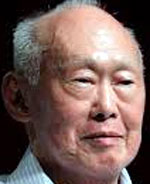 Lee Kuan Yew died 9 years ago, transforming Singapore into one of the most progressive countries in the world from an obscure backwater economy during his 31-year rule. He dedicated his life to ruling Singapore with intellectual rigor, prophetic vision of the future and pragmatic approach to governance. Singapore is one of a very rare few countries running on meritocracy with no corruption.
Lee Kuan Yew died 9 years ago, transforming Singapore into one of the most progressive countries in the world from an obscure backwater economy during his 31-year rule. He dedicated his life to ruling Singapore with intellectual rigor, prophetic vision of the future and pragmatic approach to governance. Singapore is one of a very rare few countries running on meritocracy with no corruption.
Lee is not a philosopher but his pragmatic approach and tough love to elevate Singapore to First-World status embodies deep philosophical principles of integrity, country-before-self, and devotion to duty.
Lee is one of the world leaders I deeply admire. I've written a few blogs about him and Singapore. I had been to Singapore a few times and witnessed firsthand the economic and social miracle he created. I sought an audience with him when I learned he was sick, but was denied. The following day after I left Singapore, he died. I cried.
Mahatma Gandhi (1869–1948)
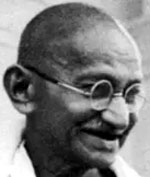 Mahatma Gandhi was not even a politician, let alone a ruler. But his principles of non-violence, spiritual ideals and ethical governance shaped India's journey to independence from British oppression. Gandhi led a nation not by political authority but by moral mandate. He rejected formal titles and led a simple life. His life was his message. His integrity and humility earned him the trust of millions. He put a stop to the rising conflict between Muslims and Hindus by fasting. He inspired global movements for civil rights and freedom.
Mahatma Gandhi was not even a politician, let alone a ruler. But his principles of non-violence, spiritual ideals and ethical governance shaped India's journey to independence from British oppression. Gandhi led a nation not by political authority but by moral mandate. He rejected formal titles and led a simple life. His life was his message. His integrity and humility earned him the trust of millions. He put a stop to the rising conflict between Muslims and Hindus by fasting. He inspired global movements for civil rights and freedom.
*** Gandhi was assassinated by Nathuram Godse, a Hindu nationalist who felt that Gandhi was too reconciliatory to the Muslims and undermined Hindu interest. All Gandhi wanted was equal treatment of everybody across race, religion and creed.
Nelson Mandela (1918–2013)
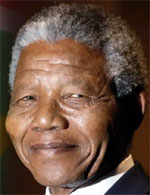 Nelson Mandela was a freedom fighter who championed the abolishment of racial segregation under apartheid. He was jailed for 27 years during which time he went through profound introspection and intellectual development. He studied law, read widely and deepened his stoic philosophical views about violence, racism and social harmony. Upon release, he pushed for non-violent reconciliation instead of revenge. He became president of South Africa and established a platform where victims and perpetrators told their stories in the pursuit of reconciliation. This prevented a civil war. He dismantled the structures of apartheid and established institutions to bring about economic equality - housing and healthcare for everyone regardless of skin color. His enduring legacy is nation-building through reconciliation instead of revenge, and governance not through personal gain but for the greater good. He transcended his personal suffering, united a divided nation and inspired global movements for justice through non-violent means.
Nelson Mandela was a freedom fighter who championed the abolishment of racial segregation under apartheid. He was jailed for 27 years during which time he went through profound introspection and intellectual development. He studied law, read widely and deepened his stoic philosophical views about violence, racism and social harmony. Upon release, he pushed for non-violent reconciliation instead of revenge. He became president of South Africa and established a platform where victims and perpetrators told their stories in the pursuit of reconciliation. This prevented a civil war. He dismantled the structures of apartheid and established institutions to bring about economic equality - housing and healthcare for everyone regardless of skin color. His enduring legacy is nation-building through reconciliation instead of revenge, and governance not through personal gain but for the greater good. He transcended his personal suffering, united a divided nation and inspired global movements for justice through non-violent means.
Mustafa Kemal Ataturk (1881–1938)
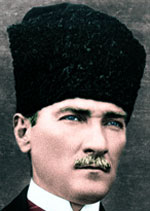 Mustafa Kemal Ataturk was the founder of modern Turkey, picking up the pieces from the remnants of the Ottoman Empire. He was a visionary leader, a great statesman and a strategic military commander. He advocated radical societal reforms through secularism with the state breaking away from tradition imposed by the theocratic Ottoman Empire. He realized that a military triumph was not enough to forge a country into the modern Western world. He introduced Western-style literacy by using the Latin alphabet to replace the Arabic script (a big step during that time). He established secular nationalism for Turkey (separate from being an Ottoman citizen). Women were allowed to vote. He was steadfast against the pushback. Ataturk's authoritarian leadership ushered Turkey into the modern world.
Mustafa Kemal Ataturk was the founder of modern Turkey, picking up the pieces from the remnants of the Ottoman Empire. He was a visionary leader, a great statesman and a strategic military commander. He advocated radical societal reforms through secularism with the state breaking away from tradition imposed by the theocratic Ottoman Empire. He realized that a military triumph was not enough to forge a country into the modern Western world. He introduced Western-style literacy by using the Latin alphabet to replace the Arabic script (a big step during that time). He established secular nationalism for Turkey (separate from being an Ottoman citizen). Women were allowed to vote. He was steadfast against the pushback. Ataturk's authoritarian leadership ushered Turkey into the modern world.
*** The Ottoman Empire lasted 623 years and reached its zenith during the reign of Suleiman the Magnificent. The collapse of the empire was a result of corruption/nepotism, Turkey's loss in WWI resulting in the Treaty of Sevres where vast territories of the empire were carved out. European powers, Britain, France and Russia were on the rise with industrialization while the Ottomans were still agrarian with a mounting debt to European nations. Ethnic regions were rising up with nationalism and wanted their independence - Arabs, Greeks, Serbs, Armenians, etc. In Turkey, Mustafa Kemal Ataturk won his war for Turkish independence and abolished the Ottoman Empire. The Ottoman Empire was one of the longest-lasting empires in the world. It shaped the politics, culture and trade between Europe, North Africa and the Middle East for 6 centuries.
Philosopher King in the Current Time
Angela Merkel (Germany, Chancellor 2005–2021)
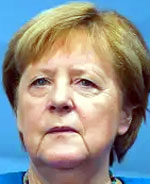 Angela Merkel
Angela Merkel
Germany, she was schooled as a physicist and approached problems with analytical rigor and pragmatic solutions. She emphasized ethics and responsibility in governance especially during the refugee crisis and the Eurozone debt crisis.
Lee Hsien Loong (Singapore, PM since 2004)
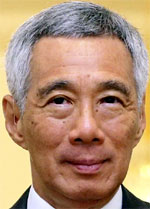 As the son and successor to Lee Kuan Yew, Lee Hsien Loong has big shoes to fill. He graduated with top honors at Cambridge in Math, Public Administration at Harvard, and rose to the rank of Brigadier General of the Singapore Armed Forces. His Smart Nation initiative merged technology into public administration, education and all aspects of society, making Singaporeans digital adepts. His forward-thinking philosophy is seen in Singapore's green energy, urban sustainability, and climate change resilience. With Singapore's multi-racial demographics (Muslims, Chinese and Hindus), Lee fosters multiculturalism, religious tolerance and inclusion. He ensured affordable housing, healthcare and high-level education. He promotes the principles of good governance, meritocracy and transparency. He instills a fine balance between individual freedom and social stability. He navigated the Covid crisis with composure, using empirical data to develop policies. Like his father, Lee is committed to the welfare of the Singaporeans.
As the son and successor to Lee Kuan Yew, Lee Hsien Loong has big shoes to fill. He graduated with top honors at Cambridge in Math, Public Administration at Harvard, and rose to the rank of Brigadier General of the Singapore Armed Forces. His Smart Nation initiative merged technology into public administration, education and all aspects of society, making Singaporeans digital adepts. His forward-thinking philosophy is seen in Singapore's green energy, urban sustainability, and climate change resilience. With Singapore's multi-racial demographics (Muslims, Chinese and Hindus), Lee fosters multiculturalism, religious tolerance and inclusion. He ensured affordable housing, healthcare and high-level education. He promotes the principles of good governance, meritocracy and transparency. He instills a fine balance between individual freedom and social stability. He navigated the Covid crisis with composure, using empirical data to develop policies. Like his father, Lee is committed to the welfare of the Singaporeans.
*** Other sources say that Singapore is now tackling what it wants to be in 40 years. I say this from a country where inept politicians keep the country behind schedule with its infrastructure projects. It has left its reliance on Malaysian water by having its own desalination plant. As a validation for everything good happening in Singapore, the Singapore passport is the most coveted, giving its carrier the most global access with the least hurdle.
Emmanuel Macron (France, President since 2017)
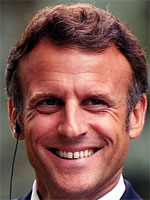 Emmanuel Macron studied the philosophy of Paul Ricoeur. His policies are framed within the bigger picture of philosophical debates - a united Europe, climate change, domestic reform and geopolitics. He keeps a fine balance between individual freedom and societal stability. He is open to dialogue with dissenting views especially after hosting the Yellow Vest crisis where opposing parties discussed their grievances. He navigates France in the geopolitical maze while keeping a hold on a unified Europe. He thinks about France from a global perspective. He is criticized for his intellectual rigor being out of touch with ordinary citizens and that his policies are elitist.
Emmanuel Macron studied the philosophy of Paul Ricoeur. His policies are framed within the bigger picture of philosophical debates - a united Europe, climate change, domestic reform and geopolitics. He keeps a fine balance between individual freedom and societal stability. He is open to dialogue with dissenting views especially after hosting the Yellow Vest crisis where opposing parties discussed their grievances. He navigates France in the geopolitical maze while keeping a hold on a unified Europe. He thinks about France from a global perspective. He is criticized for his intellectual rigor being out of touch with ordinary citizens and that his policies are elitist.
*** Macron was a surprise to me. Much of what I read about him is not exactly favorable, but nearly all media now has an agenda and thus unreliable.
Ending Thoughts
In modern times, rulers (presidents, prime ministers, kings) face immense pressure from powerplay dynamics in the geopolitical scene, fragmented electorates, rival parties, political debt-of-gratitude and limited resources that they resort to pragmatism, continuity in power, and survival, instead of profound philosophical inquiries. It is a more compelling priority for them to continue staying in power or even survive.
IMHO, Obama is a good example. He's smart and wants to make a difference but he owed so much to the cabal who put him in power that his ability to say NO was no longer exercisable. As Steve Jobs described him, "Obama is smart and knows what to do, but he doesn't want to offend some people." Putin put it more succinctly, "When a new US president assumes office, a man with a briefcase comes to his office and tells the new president what to do." I believe Trump is an exception to this rule, but Trump is far from being a philosopher king.
--- Gigit (TheLoneRider)
YOGA by Gigit ![]() |
Learn English
|
Learn English ![]() |
Travel like a Nomad
|
Travel like a Nomad ![]() |
Donation Bank
|
Donation Bank ![]()
Leave a comment?
Next story:

![]()
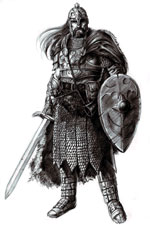
![]()
Nov Learning: Archetype, Game Theory, Starting with A.I.
(November 2024) Whenever I get curious about something, I look it up and learn it beyond its dictionary meaning. AI is indispensible this way. For November, I learned Archetype, ...more »»
»» back to Learning
»» back to Homepage
ARCHIVE 2025:
JAN |
FEB |
MAR
1970 |
1973 |
1975 |
1976 |
1979 |
1981 |
1996 |
2000 |
2001 |
2002 |
2003 |
2004 |
2005 |
2006 |
2007 |
2008 |
2009 |
2010 |
2011 |
2012 |
2013 |
2014 |
2015 |
2016 |
2017 |
2018 |
2019 |
2020 |
2021 |
2022 |
2023 |
2024 |
2025 |
ALL BLOGS